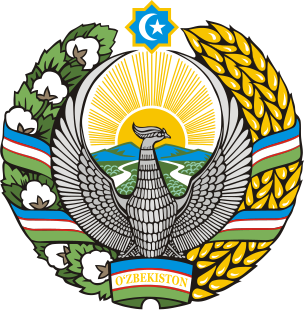
The Constitution of Japan is the fundamental law of Japan. It was enacted on 3 May 1947, as a new constitution for a post-war Japan.
Chapter 4: Bill of Rights.Chapter 4 of the 1997 Constitution of Fiji is titled Bill of Rights. It is one of the longest chapters of the Constitution, comprising a total of twenty-three sections.
Freedom of movement, mobility rights, or the right to travel is a human rights concept encompassing the right of individuals to travel from place to place within the territory of a country, and to leave the country and return to it. The right includes not only visiting places, but changing the place where the individual resides or works.

The Fundamental Rights, Directive Principles of State Policy and Fundamental Duties are sections of the Constitution of India that prescribe the fundamental obligations of the states to its citizens and the duties and the rights of the citizens to the State. These sections comprise a constitutional bill of rights for government policy-making and the behaviour and conduct of citizens. These sections are considered vital elements of the constitution, which was developed between 1947 and 1949 by the Constituent Assembly of India.

The Constitution of Andorra is the supreme law of the Principality of Andorra. It was adopted on 2 February 1993 and given assent by the Andorran people in a referendum on 14 March 1993. According to the Constitution itself, it was to enter into force on the day of its publication in the Butlletí Oficial del Principat d'Andorra, which occurred on 28 April 1993.
Chapter Two of the Constitution of South Africa contains the Bill of Rights, a human rights charter that protects the civil, political and socio-economic rights of all people in South Africa. The rights in the Bill apply to all law, including the common law, and bind all branches of the government, including the national executive, Parliament, the judiciary, provincial governments and municipal councils. Some provisions, such as those prohibiting unfair discrimination, also apply to the actions of private persons.
Security of the person is a basic entitlement guaranteed by the Universal Declaration of Human Rights, adopted by the United Nations in 1948. It is also a human right explicitly mentioned and protected by the European Convention on Human Rights, the Constitution of Canada, the Constitution of South Africa and other laws around the world.
Fundamental rights are a group of rights that have been recognized by the Supreme Court as requiring a high degree of protection from government encroachment. These rights are specifically identified in the Constitution

The Constitution of Belgium dates back to 1831. Since then Belgium has been a parliamentary monarchy that applies the principles of ministerial responsibility for the government policy and the Trias Politica. The Constitution established Belgium as a centralised unitary state. However, since 1970, through successive state reforms, Belgium has gradually evolved into a federal state.

The Constitution of Kosovo, refers to the supreme law of the Republic of Kosovo. Article four of the constitution establishes the rules and separate powers of the three branches of the government. The unicameral national Assembly of the Republic exercises the legislative power, the executive branch led by the President and the Prime Minister which are responsible for implementing laws and the judicial system headed by the Supreme court.
Title 2 of the Swiss Federal Constitution of 18 April 1999, entitled "Fundamental Rights, Civil Rights and Social Goals", contains a comprehensive and directly enforceable bill of rights, as well as a set of social goals which the state authorities are to pay heed to. A few rights, notably political ones, are explicitly reserved to Swiss citizens, while all others apply to all persons in Switzerland, including legal entities such as corporations.
The Law of the Republic of China, is based on civil law with its origins in the modern Japanese and German legal systems. The main body of laws are codified into the Six Codes:

The Constitution of the Northern Cyprus was prepared by the Constituent Assembly of Northern Cyprus after the declaration of independence on 15 November 1983, and was approved by the Turkish Cypriot electorate in a referendum on 5 May 1985 with a majority of 70.2% in favour. The constitution is similar to the 1975 Constitution of the Turkish Federated State of Cyprus, but had a number of new provisions regulating the needs of the new Republic. It has 164 articles and 13 transitional articles.
Freedom of speech is the concept of the inherent human right to voice one's opinion publicly without fear of censorship or punishment. "Speech" is not limited to public speaking and is generally taken to include other forms of expression. The right is preserved in the United Nations Universal Declaration of Human Rights and is granted formal recognition by the laws of most nations. Nonetheless the degree to which the right is upheld in practice varies greatly from one nation to another. In many nations, particularly those with authoritarian forms of government, overt government censorship is enforced. Censorship has also been claimed to occur in other forms and there are different approaches to issues such as hate speech, obscenity, and defamation laws.

The Constitution of Uzbekistan was adopted on 8 December 1992 on the 11th session of the Supreme Council of Uzbekistan. It replaced the Constitution of the Republic of Uzbekistan of 1978. It is the supreme law of the Republic of Uzbekistan. The Constitution of Uzbekistan contains six parts and it is further divided into 26 chapters.
The Human Rights Organization Of Pakistan Urdu: اداره حقوق انسانى پاكستان or HROOP, is an independent, non-profit organization, founded in 2009. HROOP believes human rights are not being adequately protected, it will say so clearly and strongly, and will actively seek change in the law, policy or practice concerned.

The 1951 Libyan Constitution was brought into force on 7 October 1951, prior to Libya's formal declaration of its independence on 21 December 1951 as a constitutional and hereditary monarchy under King Idris. The enactment of the Libyan Constitution was significant in that it was the first and only piece of legislation that formally entrenched the rights of Libyan citizens after the post-war creation of the Libyan nation state.
Part One is a compilation of laws pertaining to the Constitution of Albania, that consists of fourteen articles. This part of the Constitution is the first of eighteen parts.








